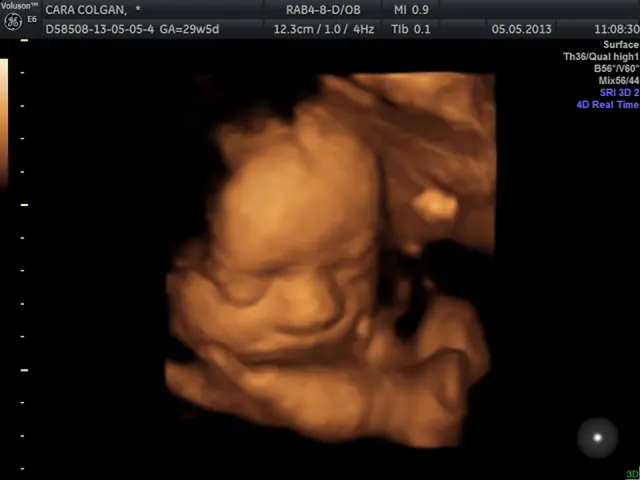Nick Cave's Wild God: The Tumultuous Journey Through Grief and Finding Solace in Joy
Review of Nick Cave and the Bad Seeds' 'Wild God': An Assessment by Our Culture Channel
In the new album by Nick Cave and the Bad Seeds, 'Wild God' takes us on a powerful journey through the crucible of grief, uncovering a newfound level of absolution through joy in the face of tragedy.
Unsubtle from the get-go, this album marks a stark departure from the Bad Seeds' early punk roots, drenched in hymnal strings, gospel choirs, and Cave's preacherly intonation. For those unacquainted with Cave's recent work, this might not be a sudden departure for the Prince of Darkness. Known for his prolific career spanning 50 years, from his days with post-punk band The Birthday Party to his movie soundtracks and side projects, he's most recognized for his work with the Bad Seeds. With over 18 albums and a 40-year timeline, the Bad Seeds have traversed various eras, from punk legends to murderous folk tales, piano ballads, art rock, and orchestrated double albums.
It was Cave's personal tragedies, the deaths of his sons Arthur in 2015 and Jethro in 2022, that irreversibly shaped him and his output. In the aftermath of these losses, Cave has become more emotionally candid, grappling with grief publicly and emphasizing the values of compassion, empathy, and spirituality.
Following Arthur's death, Cave released his furious cry into the dark night, 'Skeleton Tree.' He followed it up with the haunting 'Ghosteen', a mournful lament for the lost. 'Wild God' is the third album since Arthur's death, demonstrating a formalized spirituality as Cave reaches out to deities like the Wild God on the album's title track, a "wild ghost," an "old god," and other long-haired figures.
Throughout the album, these religious figures guide Cave toward understandings of the world influenced by love unbound by mortality. Frequently, lyrics express his yearning for - and lasting connection with - his lost loved ones. In 'Joy,' Cave invokes sorrow in repeated lyrics, propelling the listener through a center of despair before reaching a revelation: "And all across the world they shout out their angry words/About the end of love, yet the stars stand above the earth/Bright, triumphant metaphors of love."
At the same time, Cave's arch cynicism keeps the album grounded, preventing it from slipping into sentimentality. 'Cinnamon Horses' finds Cave reflecting on dishonesty with friends and himself about his mental health: "I told my friends some things were good/That love would endure if it could."
Despite its dark themes, 'Wild God' still knows how to rock, blending church-like piano chords, churning guitars, Warren Ellis' shrieking strings, and gospel choirs. It may lack the replayability of the band's earlier work, but this album is an astonishing work of art that sees Cave reach a level of acceptance with grief that the joy he finds feels well-earned. 'Wild God' is both atestament to Cave's unwavering commitment to confronting grief and his resilience in finding solace in unconventional avenues.
In a beautiful coda, the album ends with 'O Wow O Wow (How Wonderful She Is)', an ode to former bandmate and former lover Anita Lane, who died in 2021. It features the only explicit lyrics on the album, before turning to full-on exultation, emphasizing Cave's spiritual approach to death. The celebratory song concludes with a recording of Lane reflecting on the time she spent with Cave, offering an intimate, vulnerable glimpse into their history.
'Wild God' is an album that demands to be listened to. Its unsettling beauty lies in its raw, visceral examination of grief, while the interwoven threads of spirituality, love, and redemption create a sacramental tapestry that ultimately delivers a powerful sense of uplift and catharsis.
In the album 'Wild God', Nick Cave expresses his spiritual views, invoking 'deities' such as the Wild God and other long-haired figures, demonstrating a formalized spirituality prominently in the album's context. The hymnal strings and gospel choirs in the album could be likened to a forgotten cave echoing with ancient hymns.
The emotional impact of Nick Cave's personal tragedies is evident in the album, particularly in the track 'Joy', where he delves into the connection with his lost loved ones, much like unbelievably profound and healing entertainment found in specific music pieces.
Throughout the album, the religious figures serve as guides for Cave, leading him towards understanding of the world through love unbound by mortality. This parallels Nick Cave's LinkedIn profile, where he describes his work as a 'spiritual search', striving to bridge the human condition with the divine, much like the impact of music transcending ordinary emotions to reach the spiritual realms.










